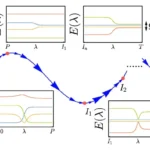Key Points
- Eurozone industrial production declined 2.4% in April, exceeding economists’ forecasts for a 1.7% decrease.
- Trade surplus dropped sharply to €9.9 billion, down from €37.3 billion in March.
- Exports to the U.S. declined to €47.6 billion, primarily due to lower shipments of pharmaceuticals and chemicals.
- Ireland’s industry shrank 15%, reflecting the reversal of pre-tariff export surges.
The eurozone’s industrial and trade sectors suffered a significant setback in April, signaling deeper economic challenges than previously anticipated. According to data released by Eurostat on Friday, industrial production in the 20-nation bloc contracted by 2.4% month-over-month, far worse than the 1.7% decline predicted in a Reuters poll. Every sector of the industry experienced a downturn, indicating widespread disruption.
This sharp decline is attributed mainly to U.S. tariff actions, which prompted companies to accelerate shipments in February and March ahead of the April 2 announcement. The result was an artificial inflation of previous months’ data, followed by a steep drop in April that has rattled economic forecasts across the euro area.
Adding to the gloom, the eurozone’s trade surplus plummeted to €9.9 billion in April, a steep decline from €37.3 billion the previous month. The bloc’s exports to countries outside the eurozone decreased by 8.2%, while EU-wide exports experienced a sharper decline of 9.7%. One of the most dramatic shifts came in exports to the United States, which fell from €71.1 billion in March to just €47.6 billion in April.
The plunge was most pronounced in chemical exports, particularly pharmaceuticals, originating from Ireland. Many multinational firms based there had ramped up U.S. shipments in anticipation of the tariffs, temporarily boosting GDP figures. However, the reversal saw Irish industrial production fall by a staggering 15% in April, which in turn dragged down the euro zone’s overall figures.
Despite the setback, some hope remains. Recent manufacturing surveys suggest a modest rebound may be possible. Analysts believe the eurozone may avoid a manufacturing recession, although the pace of recovery is expected to remain sluggish.





